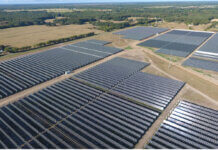For several years, certain federal, state and local tax incentives have been available to promote, among other things, the importance of renewable energy, like solar power. These incentives benefit business owners and residents who choose to implement solar energy systems on their property. Similar or comparable incentives are available for other forms of renewable energy, such as wind and biofuels.
Federal Tax Incentives
Code § 48(a) provides for an energy credit, commonly known as the investment tax credit (ITC), equal to 30% of the cost basis of qualifying energy property placed in service during a taxable year if the construction begins before Jan. 1, 2022. For the purposes of this credit, “energy property” means equipment using solar energy to generate electricity, to heat or cool (or provide hot water for use in) a structure, or to provide solar process heat, but not with regard to heating a swimming pool. Additionally, such property must be depreciable, with an estimated useful life of at least three years.
If you are interested in taking advantage of the ITC, don’t wait to convert. For properties on which construction begins after Dec. 31, 2019, there is a phase-out of this credit. Additionally, if the energy property is not placed in service before Jan. 1, 2024, the credit is limited to 10%.
The Internal Revenue Service recently issued guidance that brought further certainty to the availability of this credit by providing that investing at least 5% of the total expected installation cost prior to the end of 2019 will constitute “beginning construction.” This puts solar energy on par with other renewable energy sources.
Beyond the credit, qualifying depreciable renewable energy property receives an additional benefit from accelerated and bonus depreciation. Code § 168(e)(3)(B)(vi) provides that most solar energy property is five-year property, which qualifies under Code § 168(k) for bonus depreciation.
The practical effect of this is enormous. Currently, 100% of the cost of qualified energy property (reduced first by 50% of the ITC taken, if applicable) is immediately deductible in the year it is placed in service. This rule applies until the end of 2022, after which the percentage immediately deductible decreases by 20% annually until it is completely phased out at the beginning of the 2027 tax year.
Together, the ITC and the depreciation benefits allow a significant portion of the cost of investing in solar energy to be essentially paid for by federal tax incentives.
Alternatively, instead of the ITC, a property can elect to take advantage of a production tax credit (PTC), available under Code § 45. For 2019, the PTC is currently $0.025 (a number adjusted annually for inflation) per kilowatt-hour of electricity produced from eligible solar systems. In order to qualify, the energy must be sold to an unrelated person during the 10-year period beginning on the date the facility is placed in service.
State Tax Incentives
In Florida, the property tax exemption available for solar energy systems (and other renewable energy source devices – including wind energy and geothermal energy) was expanded effective Jan. 1, 2018. The exclusion is extended to 80% of the assessed value of such systems installed on or after Jan. 1, 2018, for non-residential properties.
Eligible solar energy source devices include portions of the system up to the point of interconnection to an electric utility’s distribution grid or transmission lines. These changes to the law are scheduled to expire at the end of 2037. New regulations governing the terms of contracts for the sale or lease of solar energy systems, including numerous required disclosures, became effective July 1, 2017.
Additionally, Florida has a corporate income tax credit for solar energy generation in the amount of $0.01 per each kilowatt-hour of electricity produced. Historically, the legislature has funded the program at $10 million per year. However, the program was not funded for the current state fiscal year that began July 1, 2019.
It is important to be mindful of the fact that many of the incentives contained in this article have time limitations, making early participation potentially more advantageous due to phase-outs or limited availability. Contact your tax advisor to take advantage of these opportunities.
Dana Apfelbaum is a shareholder in law firm Dean Mead’s Fort Pierce, Fla., office, where she practices in the areas of federal income, estate, and gift tax law, and family business succession planning. In addition, she represents businesses and business owners in all types of business and tax matters. Apfelbaum is also a member of the firm’s Solar Energy Industry Team. She can be reached at dapfelbaum@deanmead.com.
Michael Minton is chair of Dean Mead’s Solar Energy Industry Team and Agribusiness Industry Team. He represents family businesses with an emphasis on generationally owned agricultural businesses, focusing on tax issues related to agri-business, as well as water resource issues and innovative uses of land for value-added propositions. He can be reached at mminton@deanmead.com.





It is my understanding that the safe harbor (starting construction in one year, paying 5% of cost of project, Continuous progress, etc) and being able to take the full 30% tax credit even if a system’s construction isn’t finished until 2020 is only available for commercial projects, and not for residential. Residential projects have to be installed and placed in service by Dec 31 2019 to get the 30%. Please clarify.
https://www.seia.org/initiatives/commence-construction-guidance
Dara- your seia link says the same thing this article does. A residential system does not have to be placed in service by 12/31/19 to still get the 30%.
It’s definitely not completely clear but I believe that this paragraph: “The Act provided that commercial solar projects utilizing section 48 which begin construction by certain specified dates will qualify for the ITC – eliminating the prior law requirement that a project must be placed in service to qualify for the credit. However, it is important to note that the change to a beginning of construction standard was not made to the section 25D residential credit, so individual taxpayers claiming the residential solar ITC must still have their projects placed in service before they can claim the credit.” means that… Read more »